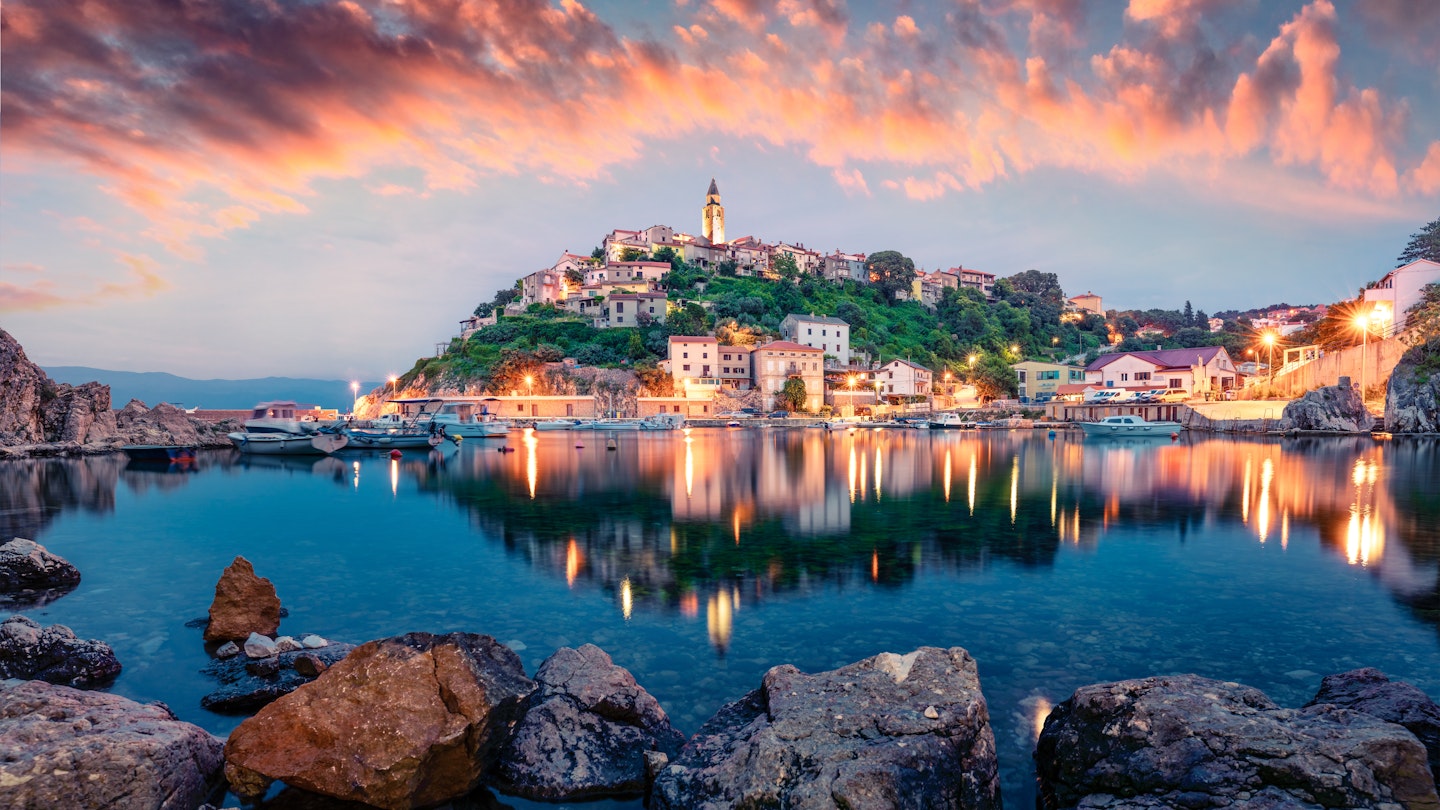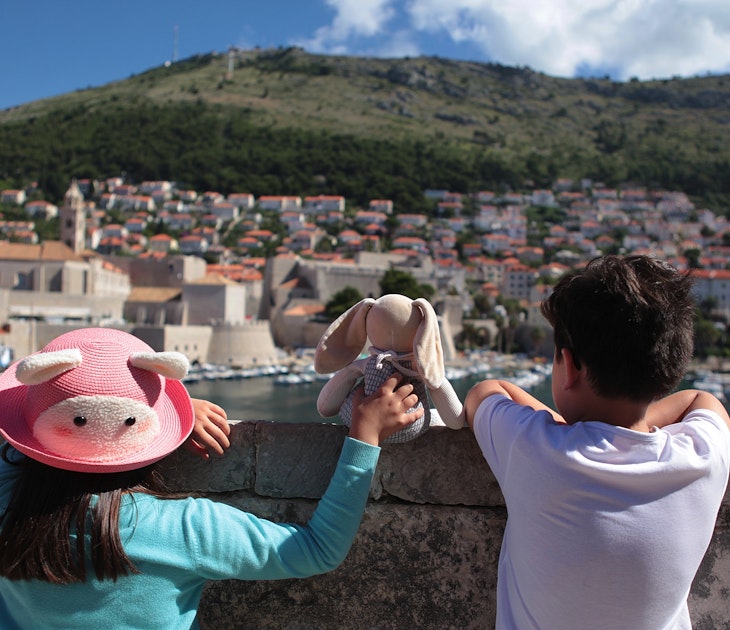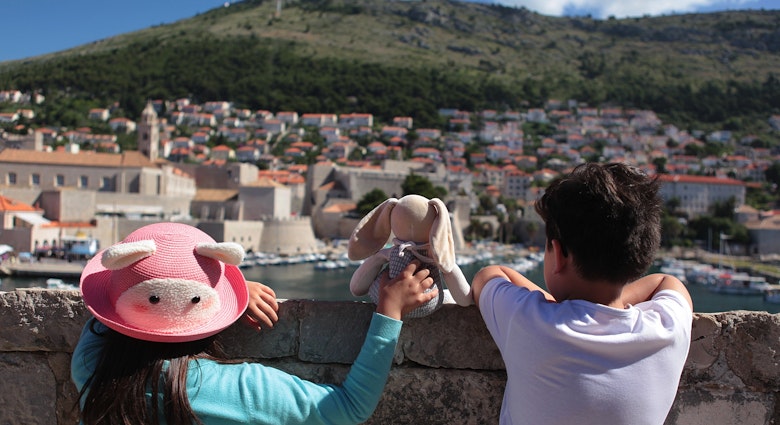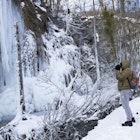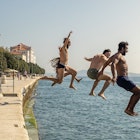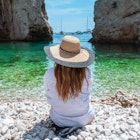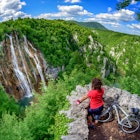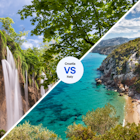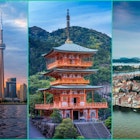With the northern coast’s gateway city, Rijeka, named as European Capital of Culture for 2020, it’s time for the Kvarner islands to take centre stage in Croatia. You don’t need to book a pricey cruise or charter a yacht to visit this compact cluster of emerald isles, nestled in the gulf between the Istria peninsula and the mainland’s rugged Velebit mountain range. Just jump on a ferry in Rijeka and island hop away.
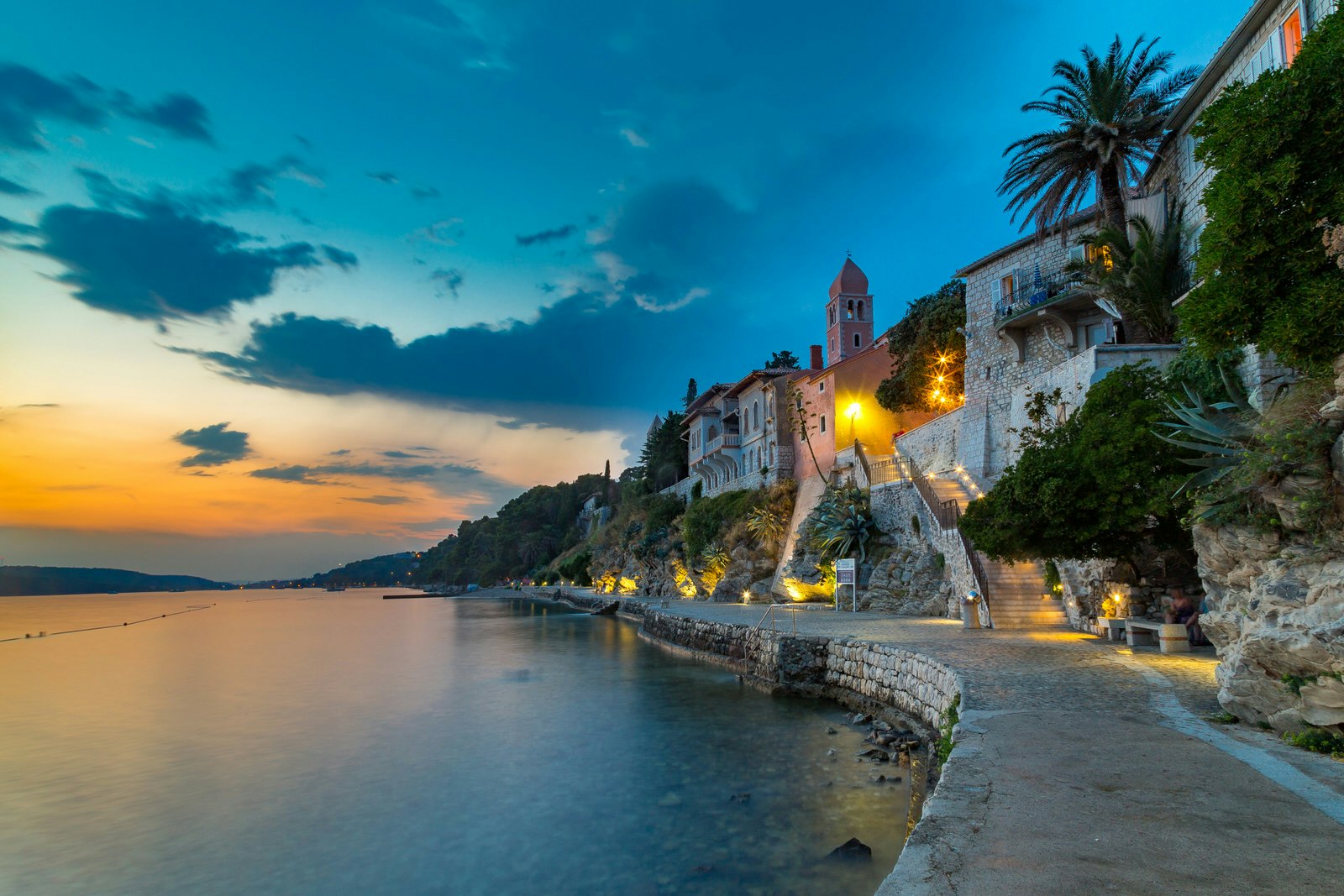
Relax and de-garb on Rab Island
From Rijeka, it’s less than two hours by fast ferry to historic Rab Town on the island of the same name. The prettiest of the gulf’s many historic walled towns, Rab’s skyline is imbued with added elegance by four church towers rising up from its ridge of ancient stone streets.
There are pebbly bays scattered all around the island, with sandy beaches congregated at the northern end, near the island’s second largest settlement, Lopar. Paradise Beach, in particular, is a magnet for young families, its warm, shallow waters lapping a bay lined with pine trees, ice cream parlours and relaxed restaurants.
Rab also has a long and venerable history of naturism, or nudism; England’s King Edward VIII and Wallis Simpson famously got their kit off here in 1936, and Sahara Beach is still a popular spot for those wishing to avoid a tan line.
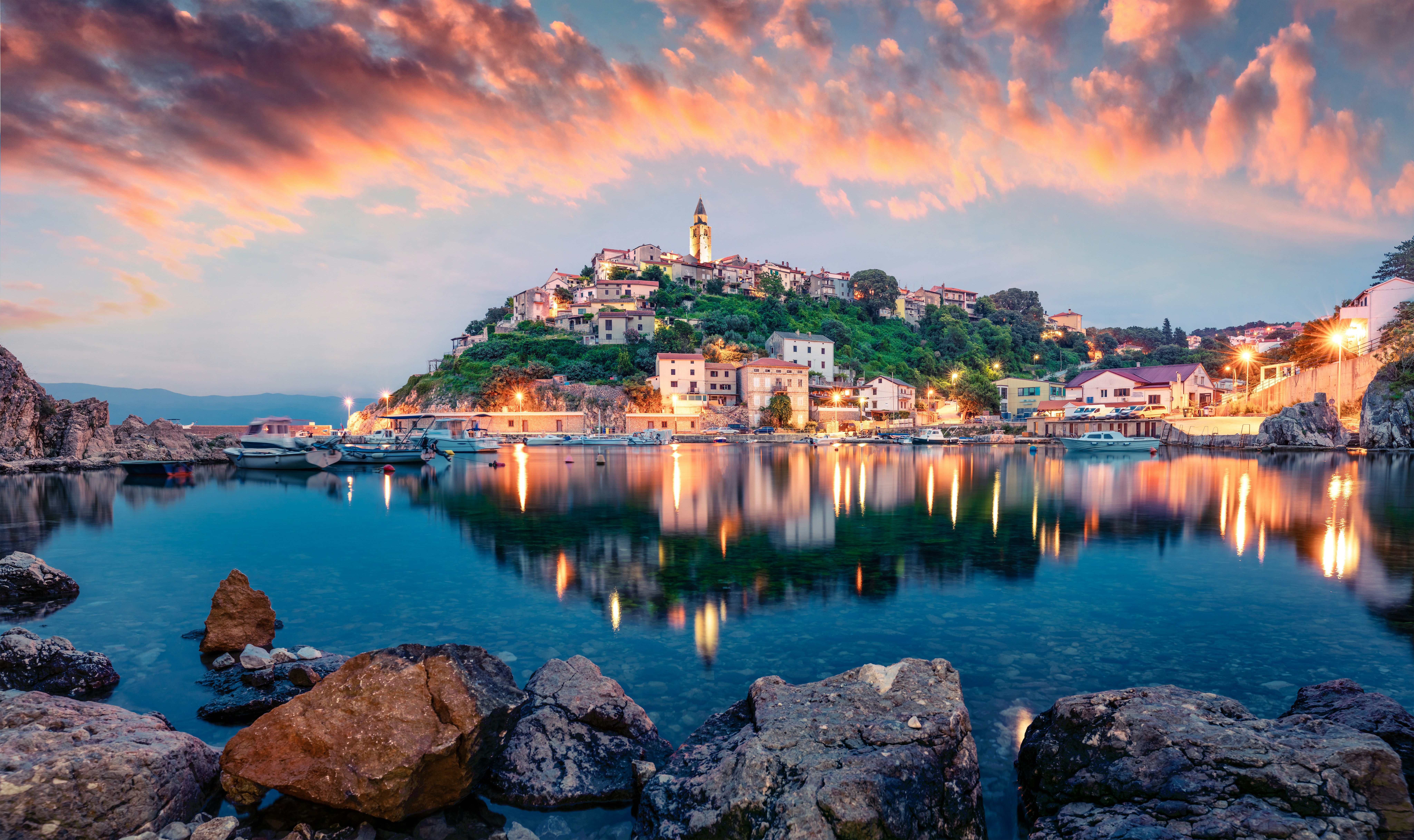
Explore Croatian history on Krk Island
In summer there are up to four ferries a day from Lopar to Valbiska, the main port of Krk Island. Krk, the largest of Croatia’s islands along with neighbouring Cres, is also Croatia’s most easily accessible island with Rijeka Airport at its northern end and a road bridge connecting it to the mainland. Consequently, its beaches are very popular with Central European holidaymakers in summertime.
The most popular beach resort is the long, graceful, mountain-backed crescent of Baška to the south; the small town’s many waterfront bars, cafes and restaurants springing to life to cater to the seasonal influx. But there’s more to Krk than its beaches; Krk Town still has sections of its Roman walls and gates, along with a 12th century tower and an impressive Romanesque cathedral. In a nearby bay, thrill
seekers blast along on a fixed wakeboarding and waterskiing cable at a speed of 32km per hour.
If you prefer your kicks on dry land, while wetting your whistle, head to the charming hilltop village of Vrbnik where you can sample the local white varietal žlahtina in atmospheric family-run cellars. Architecture, art and history buffs should visit the 16th century Franciscan monastery on the islet of Košljun and little St Lucy’s Church near Baška, which incorporates Roman masonry and the earliest reference in the Croatian language to a Croatian king, written in Glagolitic script.
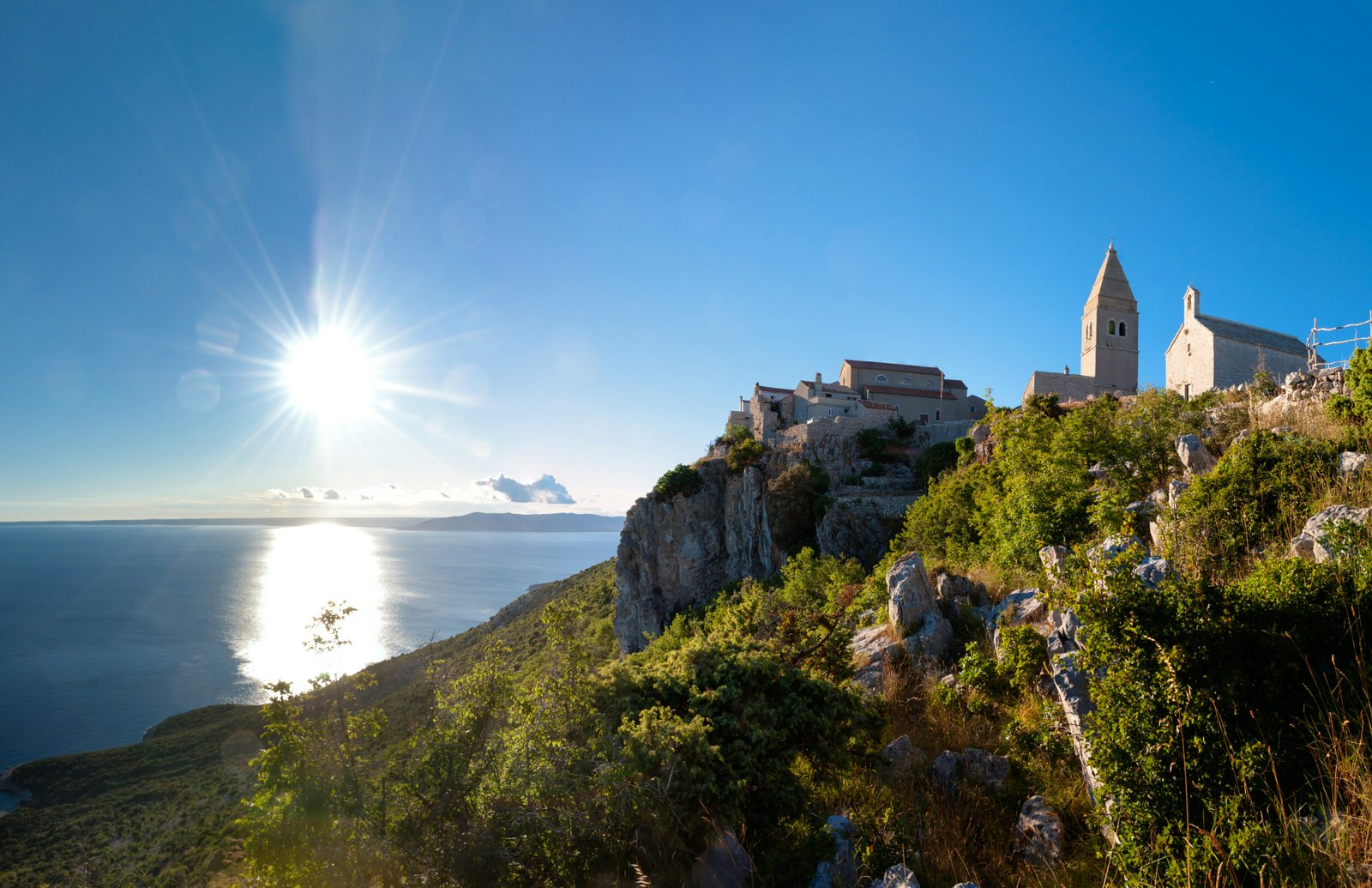
Get back to nature on Cres Island
From Krk, hop over to Cres – the regular car ferries take just 25 minutes. Long, lovely Cres stretches out languidly at the north of the gulf, shrouded in forest, with a wilder vibe than its busy neighbour. It’s known for its secluded coves and remote hilltop villages such as Lubenice and Beli, the latter of which is home to a rescue centre for Griffon vultures.
Down by the seaside, Cres Town is akin to a slice of Venice, with a sunny promenade and an impressive collection of renaissance houses and churches hunkered behind its historic walls. Even more romantic is tiny walled Osor, a virtual museum of 15th century streetscapes, liberally peppered with modern sculpture. Classical music echoes along the streets on long summer nights when Osor Musical Evenings are staged on the main square and within the gorgeous Church of the Assumption.
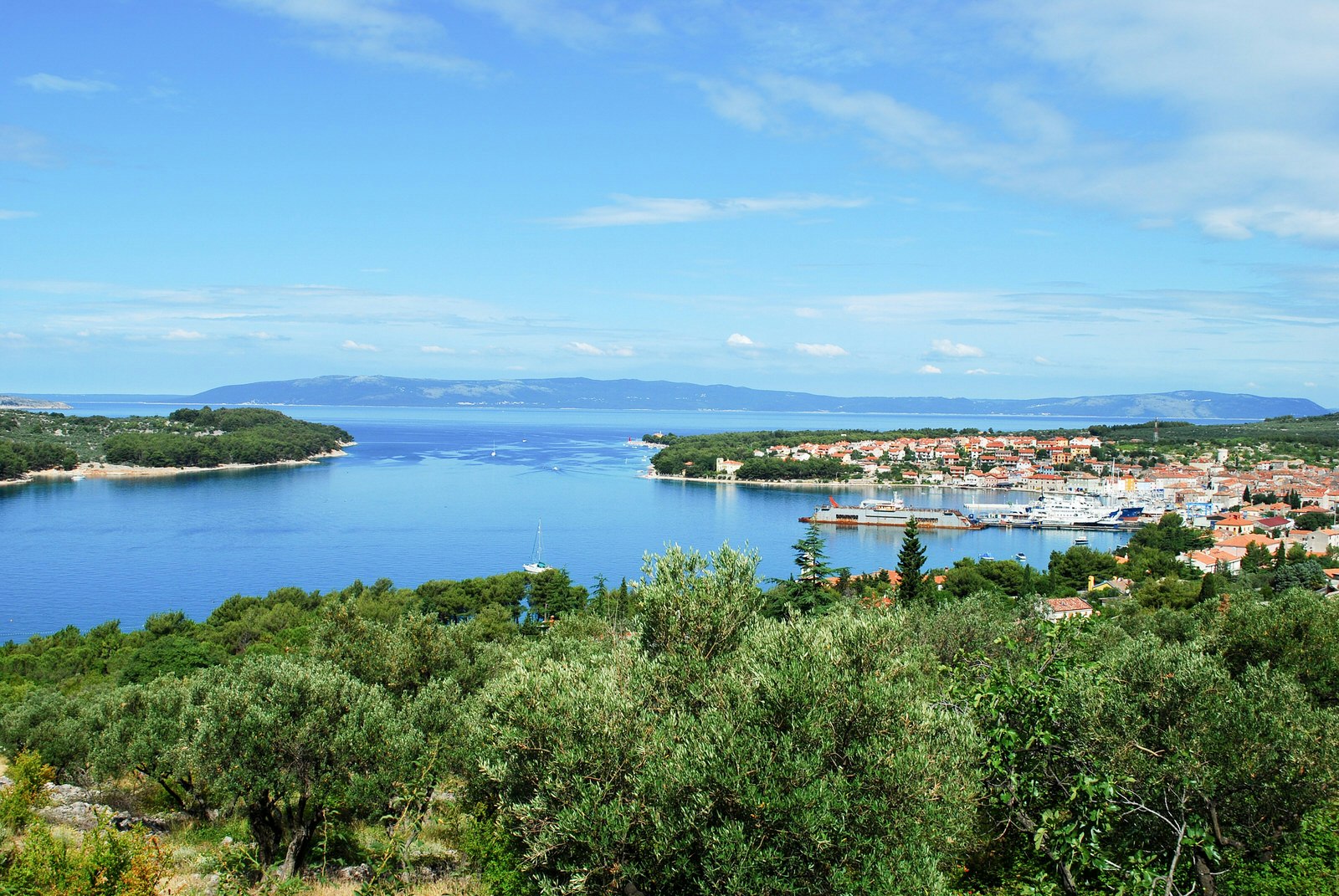
Veg out on Lošinj Island
An 11m canal is all that separates Cres from Lošinj, with the walls of Osor guarding the bridge between the two. On Lošinj most of the action is centred around the twin Venetian-era towns of Mali Lošinj and Veli Lošinj near the middle of the island. Despite mali meaning ‘small’ and veli ‘big’, Mali Lošinj is now the bigger of the two, its long harbour lined with grand homes built for 19th century ship captains. Veli Lošinj’s compact harbour has more modest dwellings draped in the pastel shades of a classic Adriatic fishing village.
Budding botanists and the green fingered will be in heaven here. The island of Lošinj is dense with vegetation: both Mali and Veli Lošinj are ringed by pine forest with varied, verdant greenery. There are 1100 plant species, 230 medicinal herbs and divergent specimens like lemon, banana, cedar and eucalyptus, brought by sea captains, centuries ago.
Once again, beaches are a big drawcard here. Large resort-style hotels have sprung up above pebbly Sunčana and Čikat bays, joining the grand holiday villas built for the Austro-Hungarian elite at the turn of the 20th century. Interspersed between the beach bars lining the waterfront are reliable operators offering diving, windsurfing, sailing, kayaking and cycling trips.
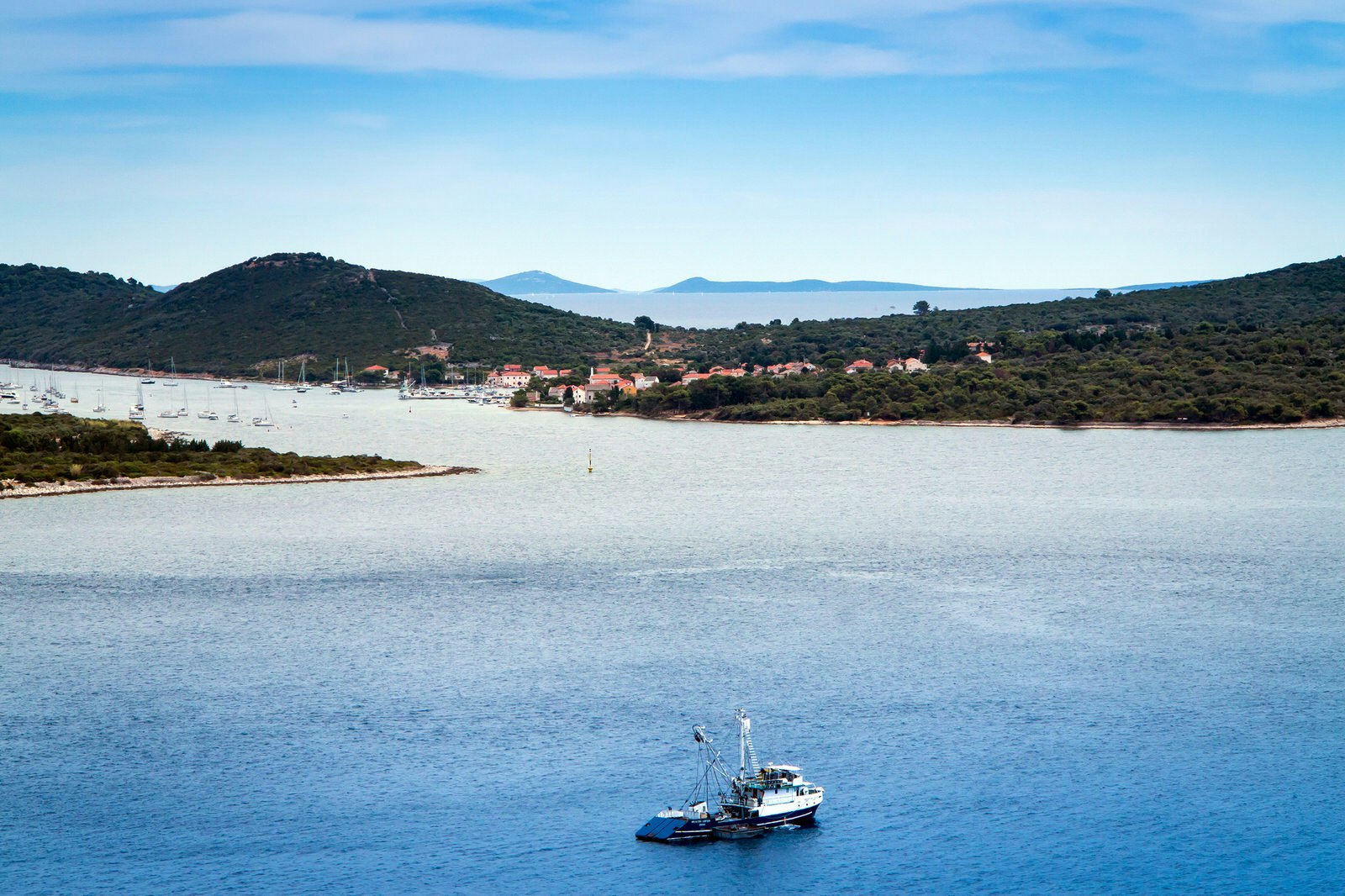
Day trip to Susak, Ilovik and Unije islands
For a complete change of pace, book a boat from Mali Lošinj to explore the scantily populated specks dotted around Lošinj Island. Susak is known for sandy beaches, unusual dialect and the bright tutu-like skirts that women trot out for weddings and feast days. Hilly Ilovik has lush, perfumed vegetation and secluded coves, while Unije has pebbly beaches and a single characterful fishing village comprised entirely of old stone houses.
Produced by Lonely Planet for Kvarner County Tourist Board. All editorial views are those of Lonely Planet alone and reflect our policy of editorial independence and impartiality.
